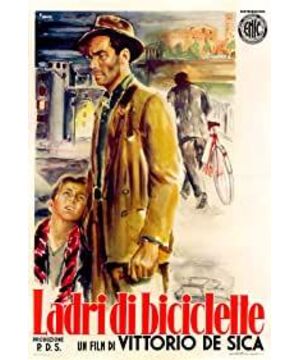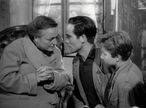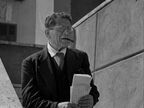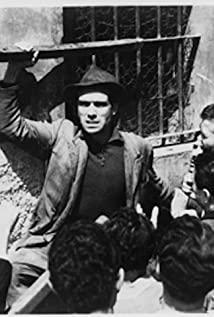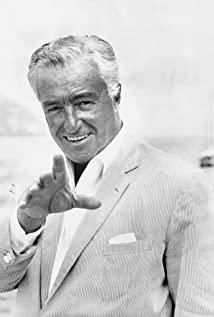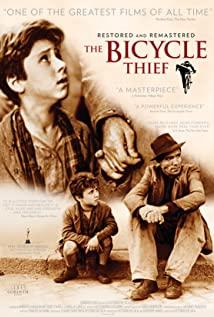There is a series of shots in which the father is looking at the parking lot in the distance. A group of people are picking up the car. There are all kinds of people. Talking loudly. Cars are being taken away. The anxiety of losing a car is shown in these shots. It not only obeys the protagonist's psychology, but also restores the enthusiasm of life itself.
People who don't know how to watch movies. The camera is just a flash of visual pause. Know how to watch movies. The lens is the soul of a movie.
2. From now on. Its revolutionary nature no longer exists. But the people who made this film are obviously looking for the unity of form and theme. This form is brought about by content. Instead of overriding it. So fifty years later, it can still impress people. And because of its popularity, it is so easy to communicate with the audience. There is no deep philosophy here. Shown here is the charm of the movie itself.
3 This movie still has a drama. That is the exchange of roles between the child and the father. This prevents the film from becoming a pseudo-documentary. Finally the father cried like a child. The child clasped his hand like an adult. This is undoubtedly the most tear-jerking scene in film history. It also adds to the tragic meaning of the film. But there is a bit of light to protect each other. Without this tension, the film will slip into a purely bystander record, but it is obviously not a documentary. It's a virtual drama. The interaction between the child and the father. Two perspectives are also provided. The scene of the father stealing the car would not be so heartbreaking without the child's attention. Who said the director did not design. There is a trick in it.
The film is a tribute to reality. There is no analysis behind this. Its aesthetic significance is based on reality.
4. Had to think of Hou Xiaoxian's movie again. The simulation of reality there is very realistic. The lens is basically critical to the documentary. But it can still express the virtual elements perfectly. What is virtual? Virtuality is something that transcends reality and is more real. So bold and able to retreat. Hou Xiaoxian's movie is so frightening here. Compared with Hou. I have to say that De Cassie is still very conservative.
But Desica is stepping on the classic film before the war. Hou stepped on Desika's movie again. Neorealism had a profound impact on the postwar period. Without it, many new waves are like losing their father. It makes people dig deeper into the magic of the movie itself.
But who considers its parents?
View more about Bicycle Thieves reviews


